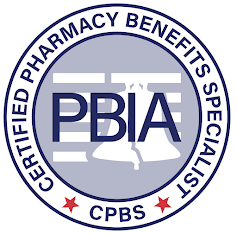The Market Demands Transparency and Perhaps a Whole Lot More and other notes from around the interweb:
- Site-of-Care Shock Looms for Infusion Services. Infusion therapy site-of-care (SOC) management policies imposed by third-party payors are driving an increasing number of infusion patients out of hospital outpatient departments (HOPDs). That’s not surprising, given the $6 billion size of this market. So, where will these patients go instead? Two SOC experts sought to answer that question during a session at the 2023 MHA Business Summit. “HOPD infusions cost on average 70% more than a physician’s office for the same infusion,” said Jacob Wiesenthal, a consultant to healthcare consultancy Recon Strategy, citing data from the Magellan Pharmacy Trend Report. But because many patients on long-term infusion therapy are often extremely sick and the treatments hard to tolerate, requiring clinical support nearby, he noted that employers and payors have not historically pushed to shift SOC for these cases, instead pursuing less risky cost-cutting opportunities. “As a pharmaceutical therapy typically covered under the medical benefit, infusion has also tended to fall through the cracks of expertise between the health plan and the pharmacy benefit manager [PBM].
- The Market Demands Transparency and Perhaps a Whole Lot More. Even though the original purpose of PBMs was to reduce the cost of prescription drugs and to keep drugs affordable, the current nationwide debate is whether PBMs do in fact lower drug prices and make them more affordable and accessible. Because PBMs have historically not been regulated, there was a lack of transparency in how PBMs operated. Multiple state and federal lawsuits have been commenced against PBMs for overcharging public programs for drugs, unjust enrichment, misrepresentation, fraud, and failure to meet ethical and safety standards. Many of these actions have already resulted in hundreds of millions of dollars in damages to providers, plans, patients, and States, while others are still ongoing. The opaque nature of PBM corporate ownership and control, as well as the confidential arrangements with key players in the health care delivery system are speculated to be causing increases in drug and medication prices without a clear and justifiable reason. What’s more, the historical lack of transparency hampers the ability of policymakers to effectively respond to the high and escalating pharmaceutical costs.
- FTC adds a third GPO to its investigation into pharmacy benefit managers. The Federal Trade Commission is building out its deep dive into the pharmacy benefit management industry yet again. The agency said Thursday that it has sent an order to the group purchasing organization Emisar Pharma Services, requiring it to provide information and records pertaining to its business practices. The order follows similar missives sent to two other GPOs, Zinc Health Services and Ascent Health Services, last month. Emisar negotiates rebates with drugmakers on behalf of Optum Rx, a UnitedHealth Group subsidiary and one of the three largest PBMs. The FTC said its order to Emisar is “substantially similar” to those issued to Zinc and Ascent.
- Report: “Specialty” Drugs are by Far the Most Expensive, but Classification Seems Arbitrary. The prescriptions with the most astonishing price tags — like cancer meds that can cost more than $20,000 a month — are usually classified as “specialty” drugs. You’d think that since they’re so costly, there would be clear criteria for putting drugs in the specialty category. But, according to a new report, you’d be wrong. The issue might seem arcane, but it’s hugely important. Specialty drugs account for only about 2% of the volume of drugs dispensed in the United States, according to industry estimates, but they also account for more than 50% of overall drug spending. The report, by data analysis firm 46Brooklyn Research, found that the three largest drug middlemen in the United States often don’t classify the same medicines as specialty. It also said that a substantial portion of the ones they do put into that category are generics — drugs that are usually no longer under patent and thus are supposed to be cheaper because multiple drugmakers can supply them.
